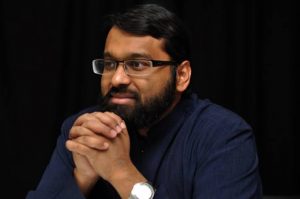The four police officers involved in the George Floyd murder are now all charged. While there is the possibility that all four will be let off, I think realistically the main culprit will be going to jail and perhaps the other three will get varying sentences or fines.
Across the country, quite a few police departments have vowed to bring substantive reform. As well, many police officers are now conscious that their actions are being monitored and there are potential repercussions. Of course the battle has not been won by any stretch – on the contrary, in the grand scale of things, barely made a dent has been made and there is just so much more to do.
But all of this small reform was the direct result (by Allah’s will) of the massive public protests that are still ongoing across the country. It is almost an undeniable fact that had it not been for such protests, the four officers would still be out on patrol and no change would have occurred anywhere.

Public protests do have impact, and at times have changed the course of history (protests were the primary mechanism of change for the Civil Rights, and for ending the draft in America, and for the change in policy in the war of Vietnam, and many more matters). This isn’t to say that protests are the only means, or even the most powerful means, to bring about change. Clearly that is not true either. But to negate their efficiency and utility is denying a tangible reality.
Those scholars (typically of one strand of Islam) who problematize protests for religious reasons are simply wrong.
There’s no other way to put this. They are not able to distinguish their cultural upbringings from the faith (one of the biggest problems of getting fatwas from overseas, or even from locals who have absorbed the cultural Islam of an overseas environment).
All you need to do is examine their evidence: every single point that is brought up is culturally relative. I am not claiming that protests are Islamic per se, but they are clearly not un-Islamic either. It is a permissible tool, and like all tools, the religion will tell you to weigh the pros and cons before deciding on a course of action. Islam didn’t come to restrict the tools of dawah and mechanisms of change – it came to teach us the goals.
As well, not everyone has the same role to play, nor is every protest for every cause in every city the same. We need to differentiate between Islamic law, and political wisdom, and understand where difference of opinions can be tolerated, and where they shouldn’t.
To summarize: protests are a means to a greater goal, and from an Islamic perspective, the general ruling is that of permissibility, but depending on the context, any of the five rulings might then apply (e.g., if the goal is ḥarām then obviously we should not be asking for it!). Once we understand that the default is permissibility, people with political acumen can then advise us when and how to utilize this tool, and understandably those people might differ amongst themselves. As well, others might avail themselves to other means and tools.
And Allah knows best.
Yasir Qadhi



